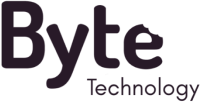The food industry has always been hard. Stiff competition, tight margins and rising costs makes breakout success harder than failure. Add in a pandemic, and it’s like working against all odds. In the past eight months most restaurants have had to shut down for at least a period of time, and Yelp estimates that 60% of those that have shut down during the pandemic are now closed permanently.
In that time, 92% of restaurant traffic has moved off premise. Few businesses were prepared for the battle we’re facing. Like millions of Americans, our team is now working from our kitchen tables, baking bread and watching entire states swing open and closed like old western style saloon doors. We’ve been busy talking to those on the ground to understand the steps they’re taking to safely get employees back to work and students back on campus. Here’s what we’re learning:
Workplaces:
Cafeterias used to be a point of socialization, gathering, and informal run-ins with coworkers. They are now points of heightened risk.
As a result:
- Many corporate cafes will be closed as more employees work from home and non-essential catering employees present unnecessary risks.
- Employees will be encouraged to stay in the office during breaks and lunch to minimize the use of elevators and points of congestion.
- All meals will be unitized and to-go. They’ll be chilled to extend shelf life and packaged to-go for pickup.
- Family style dining and community coffee pots where employees are encouraged to congregate and spend time socializing won’t be allowed.
Universities:
Similar to workplaces, university cafeterias are transforming in order to limit the risk of spread of COVID.
- All self-service salad bars, breakfast bars, coffee bars, etc will be closed.
- Similar to workplaces, there will be a move to unitized, to-go meals.
- Seating will either be eliminated (takeout only), on a reservation basis, or moved into outdoor tents.
- Campus administration is limiting traffic within corporate dining halls and is looking for safe, non-contact point-of-sale solutions to deploy in more places around campus.
It’s clear that “health and safety are front and center, and that includes how employees access food,” said Tom Larance, JLL’s head of experience management. There’s no question that food is central to office culture. Offices will look for innovative, safe ways to continue feeding their employees. Many may rethink budgets, resulting in subsidizing a smaller portion of the food cost or just specific categories of food like “healthy meals.” It’s clear that non contact solutions will be part of the path forward and businesses are getting creative with how they open.
With businesses and lifestyles changing so rapidly, we believe that people need a healthy, better-for-you option readily available now more than ever.
Coolgreens is one Byte Technology client that is leaning into using kiosks as distributed points of sale. In April, Coolgreens was required to close their restaurant dining rooms. So instead, they deployed smart fridges throughout the Dallas Ft. Worth area to drive convenience and push their products to the customer. VP of Business Development at Coolgreens, Mary Beth McGehee, shared “now that we’ve seen success with our newest locations, we have expanded our selection criteria as we go forward throughout the Metroplex. With businesses and lifestyles changing so rapidly, we believe that people need a healthy, better-for-you option readily available now more than ever. With Coolgreens Markets located in high-rise residential and office buildings, people can be more health-conscious without having to leave their office or residence.”
While vaccines seem to be progressing well, we are optimistic there is a light at the end of this tunnel. Non contact, distributed points of sale like Byte Technology kiosks are certain to continue playing a role as the economy reopens – and beyond.

